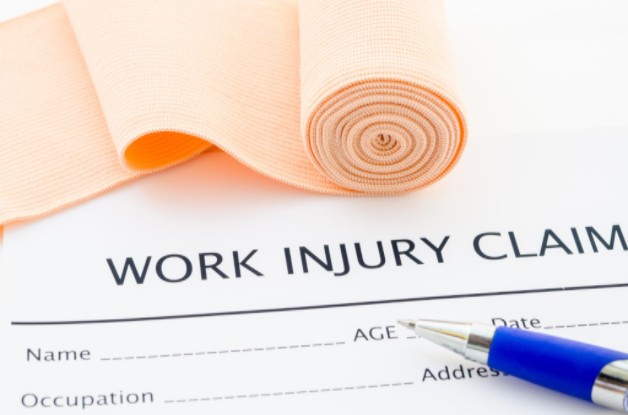
Regardless of the state in which you live, there are some fundamental workers’ compensation laws you should know. Below, we review several basic fundamental rules.
What is workers’ compensation and how does it work?
Workers’ compensation laws are designed to provide protection to employees in the event of work-related accidents, injuries, disease or illness. These benefits provide coverage for loss of income as well as reimbursement for medical expenses. In most states, this compensation is mandatory.
The following should be kept in mind regarding workers’ compensation benefits.
Workers’ comp is a no-fault system
This means that fault is typically not taken into consideration when applying for benefits. In other words, it doesn’t matter if an employee is deemed to have been negligent and that negligence resulted in their injury at work. The employee may still be eligible to receive benefits.
Injury must occur in the course and scope of employment
In order to qualify for workers’ compensation benefits, the injury must have taken place in the course of the worker’s employment. Employees cannot claim workers’ compensation benefits for an injury that occurred outside the scope of their employment. Independent contractors are usually not covered under workers’ compensation coverage.
Lost-wage benefits typically cover a portion of your wages
Workers’ compensation benefits will not replace your entire salary. In most states, workers’ compensation benefits cover up to two-thirds of the worker’s average wage.
Compensation is provided by a state agency
A state agency is responsible for administering workers’ compensation benefits in all states.
Deadlines apply for filing claims
Deadlines, also called statutes of limitations, apply when filing workers’ compensation claims and vary by state. Therefore, it’s imperative that employees who are injured on the job make sure they notify their employer and file claims in a timely manner.
Workers may not sue their employer
In most cases, employees can’t sue their employer for a workplace injury. Essentially, in exchange for workers’ compensation benefits, workers give up their right to sue an employer for any injury covered by workers’ comp benefits.
However, an employee may be able to bring a lawsuit against a 3rd party if the negligence of that 3rd party led to their injury in the workplace.
Not all employers are required to carry workers’ compensation insurance
Rules about which employers are required to carry workers’ compensation insurance vary depending on the state. In some instances, employees may be covered under a system other than workers’ comp.
Federal employees, for example, are covered under the Federal Employees’ Compensation Act (FECA). Railroad workers are covered under the Federal Employers’ Liability Act (FELA), and longshoremen and dock workers are covered under the Longshore and Harbor Workers’ Compensation Act (LHWCA).
Should employers voluntarily participate in workers’ compensation?
Even employers who aren’t legally required to participate in a workers’ compensation program may find there are benefits to voluntarily participating.
Among the primary advantages is the ability of an employer to limit their liability in the event an employee is injured on the job. In such instances, the injured employee is restricted to only those remedies offered through workers’ compensation and will not be able to sue their employer.
Additionally, employers may find it much easier to plan for disability coverage in the event that an employee becomes disabled or is unable to work following an injury.
Employers should be aware that there may be some disadvantages associated with voluntarily participating in a workers’ compensation program too. Disadvantages may include rising premiums for employers with high accident records and the need for additional time to file and manage workers’ compensation claims.
Steps to take after a workplace accident occurs
When an accident occurs at work and an employee is injured, employers should take 2 important steps as soon as possible.
Ensure the injured worker receives medical attention
Employers should make certain injured employees receive medical attention. In some instances, this may include accompanying the employee to receive medical attention or first aid.
Also, employers should recognize that all injuries should be treated as legitimate. While it’s possible that an injury claim could be false, it’s in the employer’s best interest to initially treat all claims as if they’re completely accurate.
File an accident report
Employers should make certain an accident report is filed with the workers’ compensation agency in their state as soon as possible. While each state may have different reporting requirements, it’s important to make sure that reports are filed promptly.
Reports should be written within 24 hours of the incident occurring. Employers should also make a point of following up with the injured employee.
While employers do have quite a bit of protection under workers’ compensation coverage from being sued by their employees, there are some instances when employers can be sued. For instance, if an employer fails to file the required reports in order to prevent employees from receiving the workers’ compensation benefits to which they’re entitled, employers could leave themselves open to litigation.
To ensure this doesn’t happen, employers should respond to all injured employees in a timely manner. This includes obtaining facts associated with the incident and making sure the employee is informed of their eligibility to receive compensation for their injuries.
How long does it take to receive workers’ comp benefits?
It’s the responsibility of the state agency governing workers’ compensation benefits to determine whether an employee is entitled to receive benefits. In the event there’s a dispute regarding a workers’ compensation claim, it may be possible to appeal.
Employees typically won’t receive payments for benefits until after a waiting period. This waiting period varies among states but typically ranges from 3 to 7 days.


